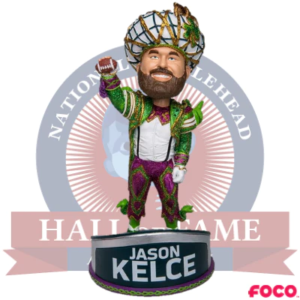Hey there, fellow sports fanatics! If you’re like me, you’ve probably got a deep love for sports and all the incredible athletes who make it so exciting. And what better way to celebrate that passion than by collecting autographed sports memorabilia? It’s like owning a piece of history and connecting with your favorite players in a unique way.
But here’s the deal: diving into the world of autographed sports stuff can be a bit tricky, especially if you’re just starting out. There’s a ton to learn, and you want to make sure you’re getting the real deal. That’s where I come in. I’m no expert, but I’ve been around the block a few times and picked up some tips I want to share with you.
So, in this guide, we’re going to break things down in a way that’s easy to understand. We’ll talk about how to know if an autograph is legit, what those fancy authentication services are all about, and even how to avoid getting scammed. Whether you’re just starting your collection or looking to up your game, this guide is here to help you become a savvy sports memorabilia collector.
Together, we’ll explore this awesome world of autographed sports gear and make sure you’re making the right moves as you start your own collection. So, let’s dive in and have some fun on this epic sports memorabilia adventure!
II. Unveiling the Athlete
Understanding the Athlete’s Autograph Habits
When diving into the world of autographed sports memorabilia, it’s essential to grasp the autograph habits of the athletes you admire. Athletes may have distinct signing styles, which can impact the rarity and value of their autographs. Here’s why this matters:
- Uniqueness: Athletes’ signatures can vary significantly, from simple initials to elaborate designs. Understanding these variations can help you recognize genuine autographs more easily.
- Scarcity: Some athletes sign autographs frequently, while others do so sparingly. Knowing an athlete’s signing habits can inform your expectations and influence your collecting strategy.
Researching an Athlete’s Autograph History
To become an informed collector, research an athlete’s autograph history. Here’s how:
- Online Resources: Utilize websites, forums, and social media platforms dedicated to sports memorabilia. These platforms often feature discussions about athlete autographs, including their signing habits and experiences.
- Autograph Databases: Some websites maintain databases of athlete autographs, allowing you to compare your potential purchase with known authentic examples.
- Interviews and Biographies: Reading interviews or biographies of athletes can provide insight into their attitudes toward signing autographs and memorable signing events.
Reliable Sources for Athlete-Related Information
When seeking information about athletes and their autographs, rely on trusted sources:
- Sports Memorabilia Communities: Engage with online communities of sports memorabilia enthusiasts. These communities often share reliable information and experiences.
- Sports Collectibles Authentication Services: Authentication services, such as PSA/DNA and Beckett Authentication Services, have experts who can provide insights into specific athletes’ autographs.
- Sports Memorabilia Shows and Conventions: Attending events where athletes appear can offer a firsthand look at their signing habits and provide opportunities for discussions with experts.
III. The Authentication Game
The Pivotal Role of Authentication
Authentication is the cornerstone of the sports memorabilia world. Without it, the value and authenticity of your collectibles are uncertain. Here’s why authentication matters:
- Preserving Value: Authenticated items hold their value better over time and are more attractive to serious collectors.
- Avoiding Forgeries: Authentication helps protect you from falling victim to counterfeit autographs, a common issue in the memorabilia market.
Key Authentication Services
Several authentication services are recognized for their expertise in verifying autographs:
- PSA/DNA: Known for its strict authentication process and widely accepted certificates of authenticity.
- Beckett Authentication Services: Offers authentication for sports memorabilia, including cards, jerseys, and photos.
- JSA (James Spence Authentication): Highly regarded for its thorough examination of autographs.
Importance of Obtaining a Certificate of Authenticity (COA)
When purchasing autographed memorabilia, insist on a COA from a reputable authentication service. A COA provides a written guarantee of authenticity and is crucial for establishing the legitimacy of your collectibles in the eyes of other collectors and potential buyers.
IV. Types and Mediums of Autographs
Different Types of Autographs
Sports autographs come in various forms, including trading cards, jerseys, photos, and more. Understanding the significance of these types can help you focus your collection:
- Trading Cards: Popular among collectors, especially in the baseball card hobby.
- Jerseys: Often signed on the number or team logo.
- Photos: Ranging from action shots to portraits, autographed photos capture iconic moments.
Distinguishing Genuine Autographs from Facsimiles
Facsimile signatures, or printed copies of autographs, are common in sports collectibles. Learn how to differentiate them from genuine autographs to make informed purchases.
Impact of Mediums on Autograph Durability
The type of ink used and the surface it’s signed on can affect the longevity of autographs. Familiarize yourself with the materials used to ensure your collectibles stand the test of time.
V. The Art of Visual Inspection
Scrutinizing Autograph Quality and Attributes
Mastering the art of visual inspection is crucial. Examine autographs for consistency, flow, and quality. Genuine autographs often exhibit unique characteristics that forgeries lack.
Evaluating Ink Color, Consistency, and Flow
Authentic autographs typically feature consistent ink color and flow, while forgeries may show irregularities. Pay attention to these details when inspecting autographs.
Where to Look for Authentic Signatures
Knowing where to find authentic signatures on sports memorabilia can help you verify their legitimacy. Different items have specific areas where athletes commonly sign, and recognizing these locations is key to a successful inspection.
VI. Provenance and Documentation
The Importance of Provenance
Provenance, or the documented history of an item, plays a pivotal role in authenticating memorabilia. Learn why it matters:
- Verification: Provenance documents can verify an item’s authenticity and provide a trail of ownership.
- Value Enhancement: Collectibles with well-documented histories often fetch higher prices in the market.
Examining Supporting Documents and Item History
Understand how to examine supporting documents, such as letters, photos, and certificates, to validate the history and authenticity of your memorabilia.
The Value of Retaining Purchase Receipts and Records
Keep records of your purchases, including receipts and any communication with sellers. These documents can serve as essential evidence of authenticity and ownership.
VII. Price Tag and Market Trends
Factors Influencing Autograph Prices
Learn about the various factors that influence the prices of autographed sports memorabilia, including:
- Player Popularity: The athlete’s fame and career achievements significantly impact the value of their autographs.
- Item Rarity: The scarcity of specific items, such as limited-edition jerseys or unique collectibles, can drive up prices.
- Historical Significance: Autographs associated with iconic moments or records often command higher prices.
Staying Informed About Market Trends and Demand
Stay up-to-date with the latest trends and demand in the sports memorabilia market to make informed buying and selling decisions.
Setting a Realistic Budget and Negotiating Effectively
Establishing a budget ensures you don’t overspend on collectibles. Additionally, learn effective negotiation techniques to secure the best deals when purchasing memorabilia.
VIII. Steer Clear of Common Pitfalls
Identifying Red Flags and Warning Signs
Recognize common red flags and warning signs of autograph forgeries to protect yourself from counterfeit collectibles.
Strategies for Dealing with Unscrupulous Sellers
Learn how to navigate transactions with integrity and protect yourself when dealing with unscrupulous sellers or potential scams.
Learning from Case Studies
Explore real-life case studies that illustrate the importance of being vigilant and learning from the experiences of other collectors.
IX. Building Your Collection
Tips for Starting or Expanding Your Collection
Receive practical advice on how to begin or expand your sports memorabilia collection, from setting goals to building a diverse collection.
Showcasing and Preserving Collectibles
Discover methods and best practices for displaying and preserving your cherished collectibles to maintain their condition and value.
Networking with Fellow Collectors and Experts
Unlock the benefits of networking with other collectors and experts in the sports memorabilia community to
So, fellow sports enthusiasts and future collectors, as we wrap up this guide, remember that collecting autographed sports memorabilia is not just a hobby; it’s a thrilling journey filled with history, passion, and endless possibilities. Whether you’re just starting out or have been at it for a while, always keep these expert insights in your back pocket.
From understanding your favorite athlete’s autograph quirks to mastering the art of visual inspection, and from the importance of authentication to navigating the ever-changing market trends, you now have the tools to embark on this exciting adventure.
But here’s the thing: collecting sports memorabilia is not just about the items themselves; it’s about the stories they tell, the connections they forge, and the memories they evoke. Each autograph is a piece of sports history, and you’re part of preserving that legacy for generations to come.
So, go out there, explore, and enjoy every moment of this incredible journey. Build your collection with pride, showcase it with passion, and don’t forget to connect with fellow collectors and experts who share your love for the game.
In the end, remember that your collection is a reflection of your passion, knowledge, and dedication. Keep learning, stay curious, and never stop chasing those legendary autographs. Your collection is your story, and it’s just beginning. Cheers to your future as a sports memorabilia aficionado!


